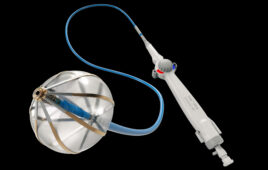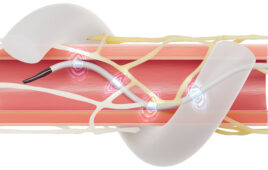
[Image courtesy of Sandra Schuh on Unsplash]
“This study provides researchers an opportunity to potentially change how doctors diagnose CTE, which today can only be diagnosed post-mortem,” principal investigator Kendall Van Keuren-Jensen said in prepared remarks. “Validating plasma exosomal tau as the basis for a non-invasive test to detect and monitor CTE in living individuals will expand significantly the body of clinical data available for analysis and may provide a starting point for early intervention.”
The clinical trial, which is planned for the second quarter of 2017, is slated to enroll 200 former professional football players. The goal of the study is to validate a CTE biomarker candidate, plasma exosomal tau or TauSome. The TauSome was previously evaluated in the 1st NIH-funded CTE research program, the Detect study at Boston University’s CTE Center.
Aethlon Medical chairman & CEO Jim Joyce has a personal connection to the issue: Joyce is a former player for the Denver Broncos. He said he was inspired by the death of a former NFL lineman and teammate, Tom McHale, who died at 45 years old in 2009.
“Our goal is to collect further evidence that supports the possibility that CTE can be diagnosed in the living,” Joyce said. “If the studies are successful, the door then opens for therapeutic candidates to be tested against this horrific disease that has impacted the lives of former players and their families. The original inspiration for our research was the death of Tom McHale, a former teammate who was also from my hometown in Maryland. It was at Super Bowl XLIII in 2009 that researchers from the BU team announced that Tom had suffered from CTE when he died at the age of 45. Therefore, in the week leading up to Super Bowl LI in Houston, we will conduct a series of activities to raise awareness of the current study plans among prospective participants.”
“We are grateful for the opportunity that was provided though the BU Detect study to gather evidence that TauSome plasma levels may serve as a biomarker to detect CTE. Beyond the advancement of our new study, we have agreed to provide continued TauSome analysis to support the clinical initiatives of our colleague at BU.”
The research team also plans to evaluate TauSome plasma levels as a biomarker to monitor Alzheimer’s disease and other neurological diseases characterized by abnormal aggregation of tau protein in the brain, according to Exosome.
Joyce said that if the research validates tau protein as a biomarker for CTE, Exosome could potentially develop a blood test for diagnosing the crippling neurodegenerative disease.
[Want to stay more on top of MDO content? Subscribe to our weekly e-newsletter.]




